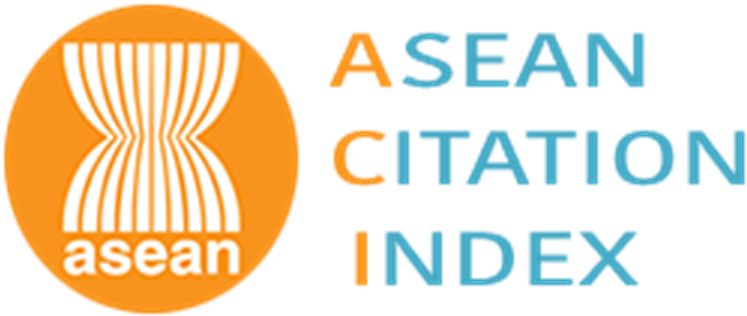การพัฒนารูปแบบการบริหารธุรกิจอุตสาหกรรมแผงวงจรไฟฟ้าสู่อุตสาหกรรมอัจฉริยะ
The Development of Business Administration Model of Processing Thailand’s Integrated Circuits Industry toward the Smart Electronics Industry
Abstract
การวิจัยนี้มีวัตถุประสงค์เพื่อศึกษาองค์ประกอบสำคัญของการพัฒนารูปแบบการบริหารธุรกิจอุตสาหกรรมแผงวงจรไฟฟ้าสู่อุตสาหกรรมอัจฉริยะ เพื่อพัฒนารูปแบบและจัดทำคู่มือการใช้รูปแบบการบริหารธุรกิจอุตสาหกรรมแผงวงจรไฟฟ้าสู่อุตสาหกรรมอัจฉริยะ เป็นการวิจัยแบบผสมผสานเชิงคุณภาพและเชิงปริมาณ เครื่องมือที่ใช้ในการวิจัย คือ การสัมภาษณ์เชิงลึก การประชุมสนทนากลุ่ม และการรวบรวมความคิดเห็นจากกลุ่มตัวอย่างโดยใช้แบบสอบถาม จำนวน 412 ราย การวิเคราะห์ข้อมูลทั่วไปใช้โปรแกรมสถิติสำเร็จรูป SPSS ใช้ค่าสถิติเชิงพรรณนาเพื่อหาค่าเฉลี่ย ค่าส่วนเบี่ยงเบนมาตรฐาน และการวิเคราะห์องค์ประกอบสำคัญโดยใช้การวิเคราะห์องค์ประกอบเชิงสำรวจ ด้วยวิธีการสกัดองค์ประกอบหลัก และการหมุนแกนแบบออโธโกนอลด้วยวิธีวาริแมกซ์ ผลการพัฒนารูปแบบการบริหารธุรกิจอุตสาหกรรมแผงวงจรไฟฟ้าสู่อุตสาหกรรมอัจฉริยะประกอบด้วยองค์ประกอบหลัก 5 ด้าน ได้แก่ 1) ด้านการจัดการองค์กร 2) ด้านการจัดการโซ่อุปทานและโลจิสติกส์ 3) ด้านการจัดการผลิตและปฏิบัติการ 4) ด้านการจัดการตลาดดิจิทัล และ 5) ด้านการจัดการทรัพยากรมนุษย์ ซึ่งองค์ประกอบด้านการจัดการทรัพยากรมนุษย์ มีความสำคัญต่อการพัฒนารูปแบบการบริหารธุรกิจอุตสาหกรรมแผงวงจรไฟฟ้าสู่อุตสาหกรรมอัจฉริยะมากที่สุด มีค่าความผันแปรและค่าความแปรปรวนเท่ากับ 53.497 สำหรับคู่มือประกอบด้วย แนวทางปฏิบัติของแต่ละองค์ประกอบ ตัวชี้วัดความสำเร็จ การประยุกต์ใช้รูปแบบการบริหารธุรกิจอุตสาหกรรมแผงวงจรไฟฟ้าสู่อุตสาหกรรมอัจฉริยะ ผลการประเมินโดยผู้ทรงคุณวุฒิเห็นว่ารูปแบบที่พัฒนาขึ้นมีความเหมาะสม และคู่มือมีความเป็นไปได้ในการนำไปใช้ได้จริง คิดเป็นร้อยละ 100
The purposes of this study were to study the factors of business administration model of Electronic Integrated Circuits toward Smart Industry, to develop a business administration model and to create a manual of business administration roadmap of electronic integrated circuits toward smart industry. The research was conducted by mixed qualitative and quantitative research approach. Qualitative data collection methods were done by in-depth interview and exploratory focus groups. A questionnaire was used to gather primary data and information from 412 survey samples. The statistics for summarizing the results contain average, standard deviation and exploratory factor analysis (EFA). As result, a development of business administration model of electronics integrated circuits toward smart industry constitutes 5 core factors and 24 sub-factors; 1) The management factor, 2) The supply chain & logistics management factor, 3) The production & operation management factor, 4) The digital marketing management factor, and 5) The human resources factor. The highest Eigen Value & Percent of Variance is the Human resources factor at 53.497. The manual consists of guidelines based on each subcomponent, key success indicators and adaptation of business administration model of electronic integrated circuits toward smart industry. The results of the professional respondents’ evaluation showed that this development model were appropriate and this manual its appropriateness in further application at 100%.
Keywords
[1] The Office of Industrial Economics. (2017). 10 Targeting Industries towards future economic. The Office of Industrial Economics. Bangkok, Thailand. [Online]. Available: http://www.oie.go.th/
[2] Information Technology and Communication Center. (2019). Thailand trading report 2013-2017. Ministry of Commerce. Bangkok, Thailand. [Online]. Available: http://www2.ops3.moc.go.th/
[3] Kasikornbank Research Center. (2019). Hard disk drive market trend. Kasikornbank. Bangkok, Thailand. [Online]. https://www.kasikornbank.com/th/
[4] S. Sae-tang, “A factors affect to effectiveness of management of hard disk drives industrial of Thailand,” Doctoral dissertation, Siam University, 2017 (in Thai).
[5] T. Selim, G. Andreas, and M. J. Sihn, “Reinventing your business model,” Journal of Business Strategy, vol. 34, pp. 30–37, 2015 (in Thai).
[6] S. Kongwattana, “A factors affect to effectiveness of management of electric and electronic,” Journal of Business Review, vol. 15, no. 2, pp. 141–148, 2015 (in Thai).
[7] P. Termteerakij, “A factors affect to SMES Business: Electric and electronic industrial,” Doctoral dissertation, Public Administration, Sripatum University, 2012 (in Thai).
[8] O. Talavera, “The incremental & cumulative effects of dynamic capability building on service innovation in organization,” Journal of Management & Organization, vol. 19, no. 5, pp. 521–543, 2008.
[9] M. Morris, M. Schindehutte, and J. Allen, “The entrepreneur’s business model: Toward a unified prospective,” Journal of Business Research, vol. 58, no. 6, pp. 726– 735, 2005.
[10] P. Thainiyom, “A factors affect for readiness of electric & electronics industrial toward Asian Economic Community (AEC),” Doctoral dissertation, Public Administration, Sripatum University, 2016 (in Thai).
[11] E. Beata and C. Magdalena, “Business model innovation in entrepreneurship,” Journal International Entrepreneurship and MGMT, vol. 8, pp. 449–465, 2017 (in Thai).
[12] W. Ngamkajornkulkij, “Understanding and customer 4.0 for brand achievement,” M.S. thesis, School of Communication Arts, Sripratum University, 2016 (in Thai).
[13] S. Kamheang, “A model of the factors causing a success in modern marketing management of startup to Thailand 4.0,” Doctoral dissertation, School of Business Administration, Siam University, 2016 (in Thai).
[14] P. Tanprasert, “The influence of digital marketing toward consumer’s buying decision via e-commerce in Bangkok,” M.S. thesis, School of Business Administration, Bangkok University, 2018 (in Thai).
[15] J. Morgan, The Future of Work - Attract new talent, Build Better Leaders, and Create a Competitive Organization. Wiley, EU: Amazon Media, 2014.
[16] A. Awiruttha, “The competitiveness advantage of electronic industrial of Thailand,” M.S. thesis, Faculty of Economics, Chulalongkorn University, 2017 (in Thai).
ISSN: 2985-2145





